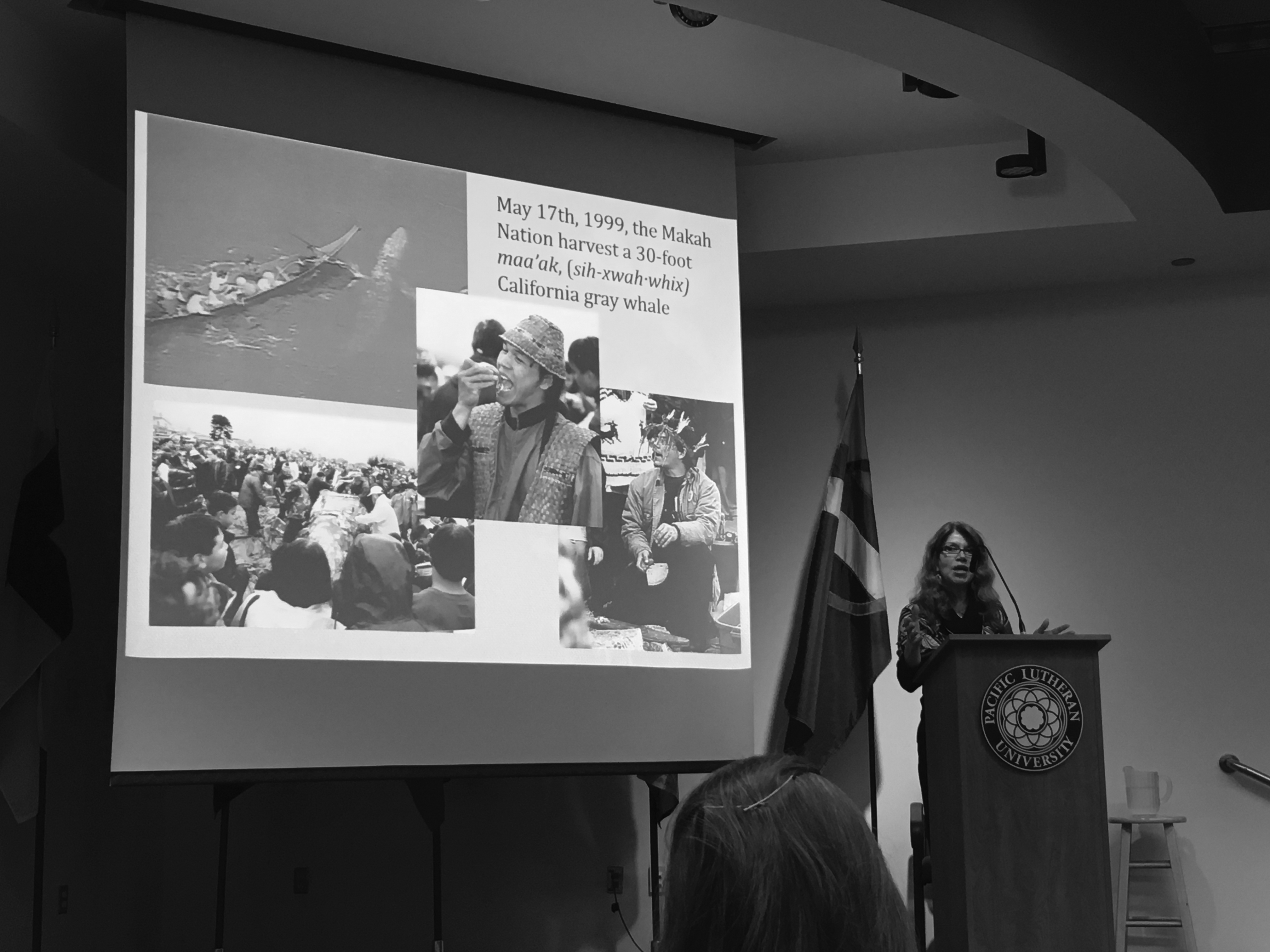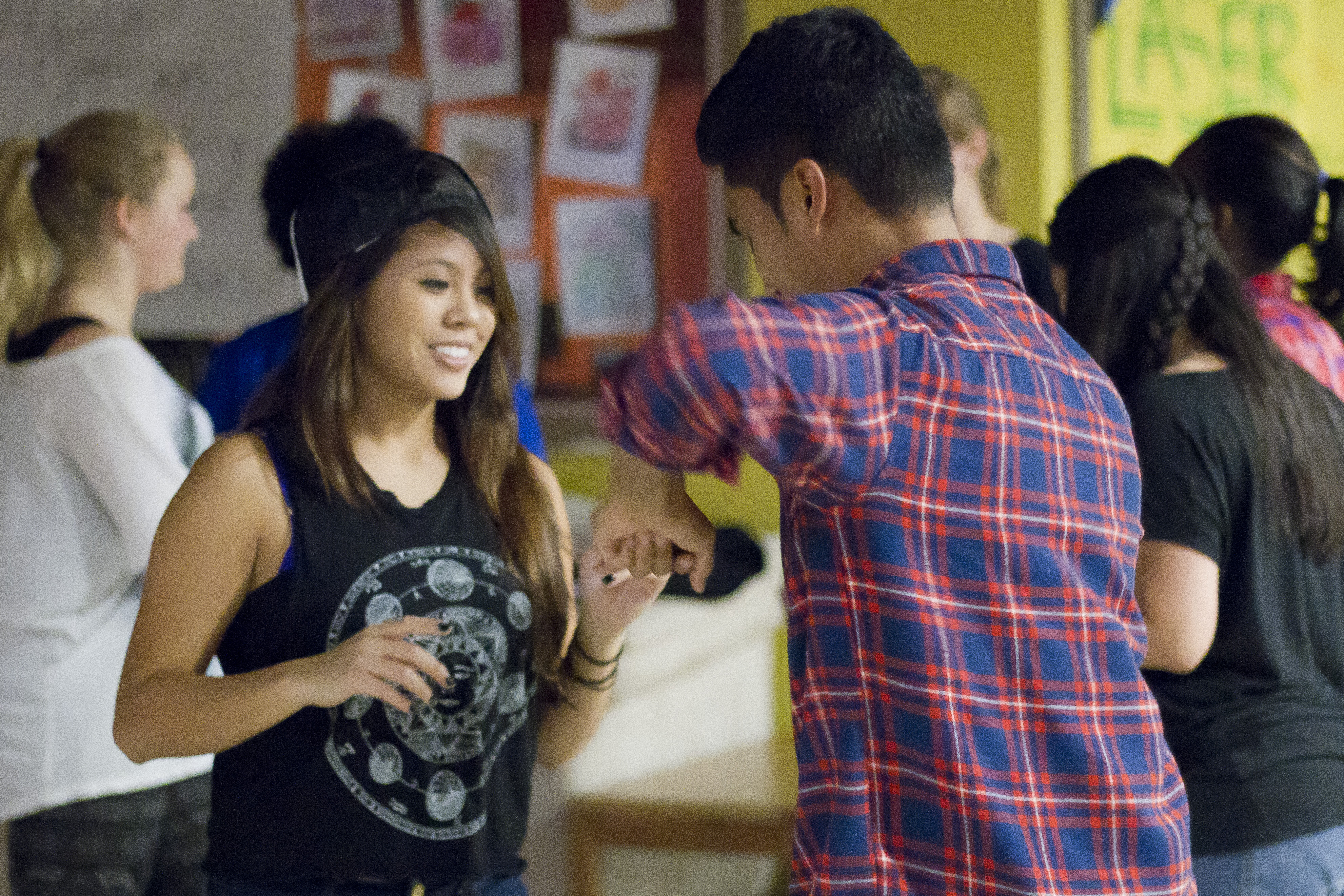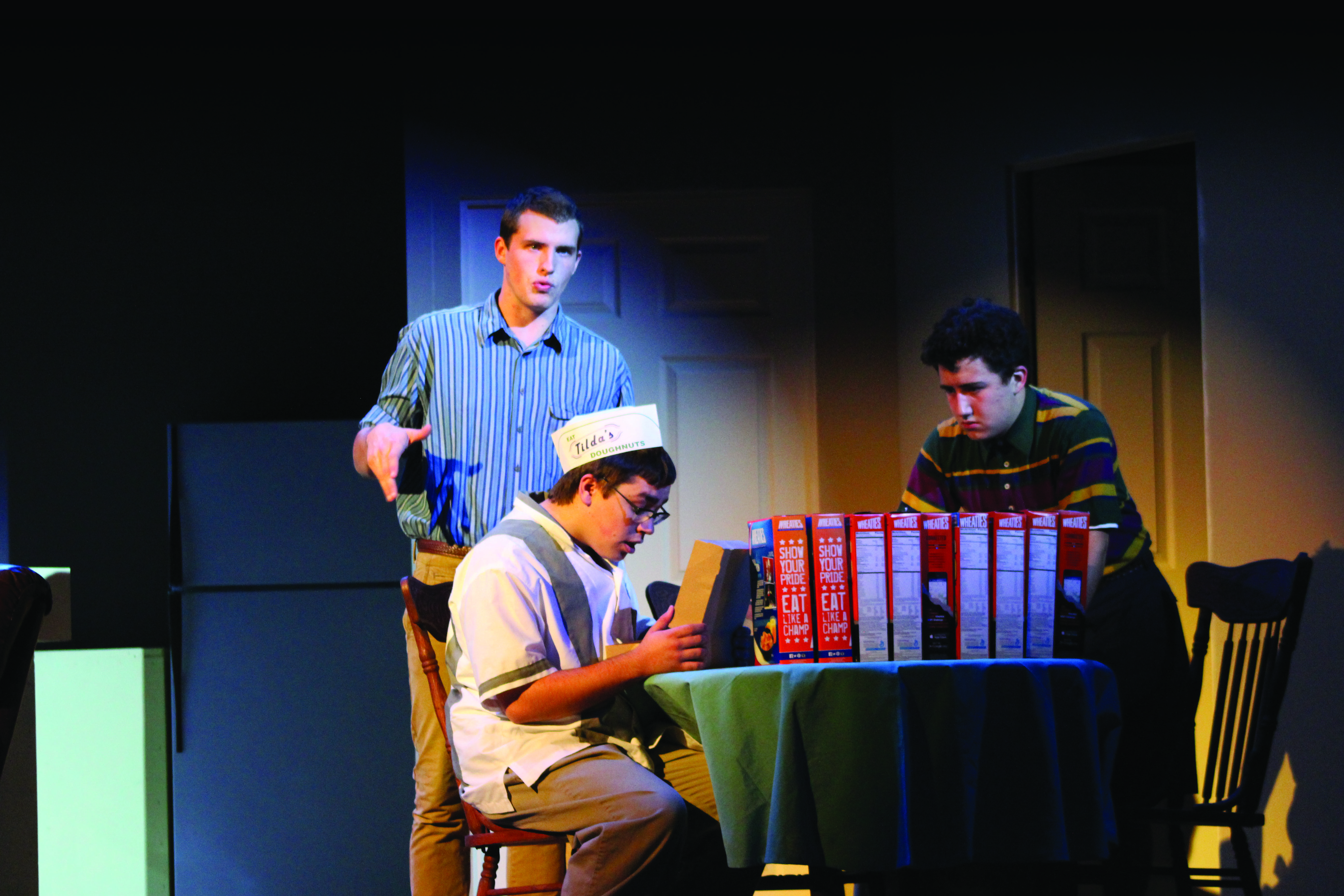JEFF DUNN
News Editor
dunnja@plu.edu
Editor’s Note: As part of COMA 427, students are encouraged to write and submit articles of interest to the Mast in order to flex their journalism muscles.
Last week, Dr. Charlotte Cote, an Associate Professor of American Indian Studies at the University of Washington, gave a lecture on food security and cultural revitalization.
Dr. Cote began her lecture by greeting the roughly 100 people in attendance in her native southern Wakashan language. In her first slide, she talked about an event described in her book, “Spirits of our Whaling Ancestors,” when she first heard the news that members of the Makah Nation had succeeded in a 1999 whale hunt. To Cote, a relative of the Makah, this was an event of immense significance. The way the Makah treated (or revered) the whale was the way she believes we should treat all food.

PHOTO COURTESY OF RESIDENTIAL LIFE
The central theme of “food sovereignty” discussed by Cote came from traditionalist movements among rural peoples in the US and Mexico pushing for more economically stable food sources that won’t punish the land.
One thing that struck me was the amount of poetry and non-academia Cote cited in her lecture. The types of sources cited suggests Cote’s cause is one that affects the passions of many.
Cote’s first book was available for purchase in the University Center’s Gray Area, as well as work from the other speakers and keynotes at the symposium.
Cote’s new book, which she said she wished she had finished by now, deals with the topic of food sovereignty in more detail.
 Campus Safety Incident Reports
Campus Safety Incident Reports Watch Now
Watch Now


















